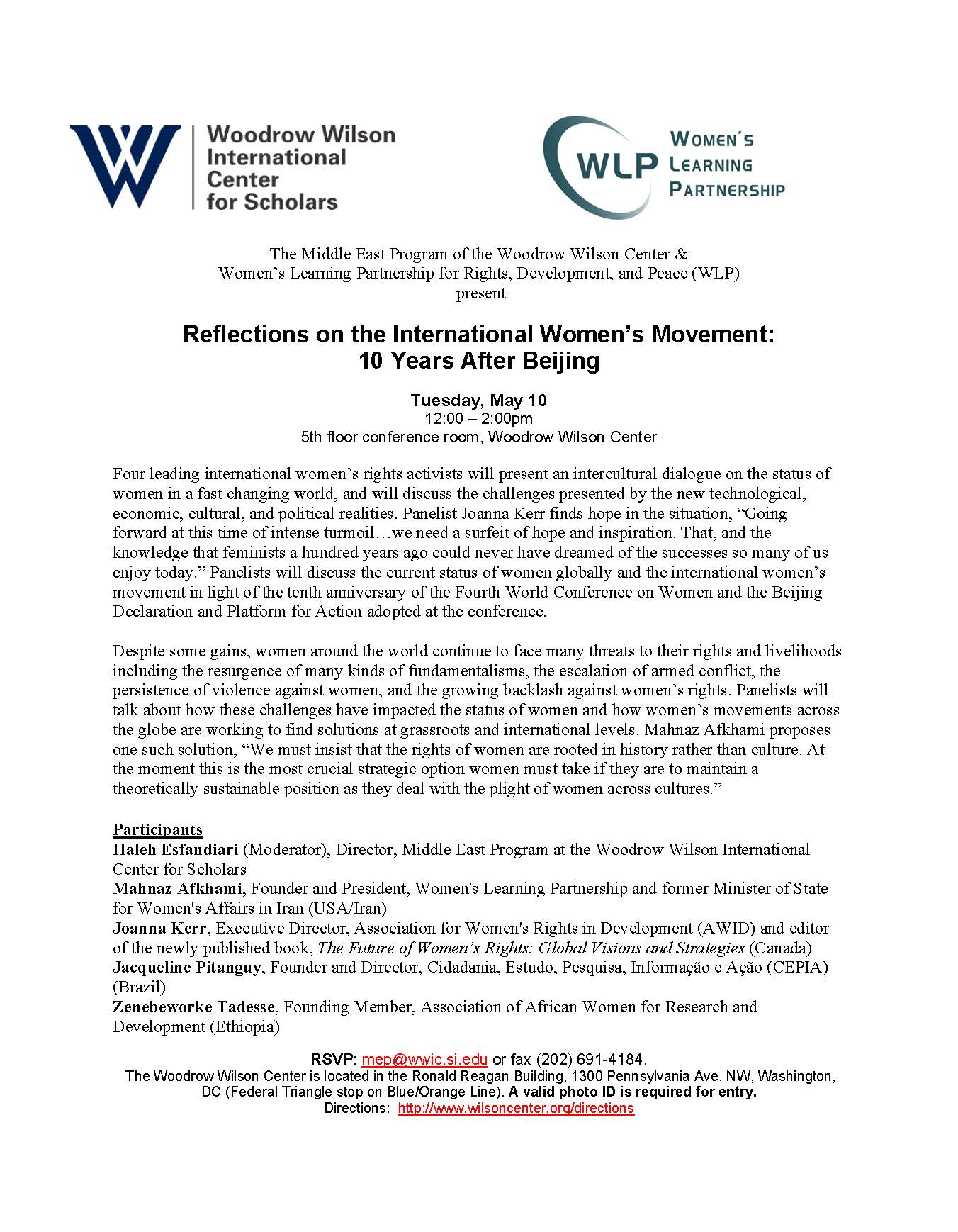Event Details
-
Time
12:00pm
-
Date
10 May, 2005
-
Location
- Ronald Reagan Building, Woodrow Wilson Center
- 1300 Pennsylvania Ave Washington, DC
-
Contact
WLP
Four leading international women’s rights activists will present an intercultural dialogue on the status of women in a fast changing world, and will discuss the challenges presented by the new technological, economic, cultural, and political realities.
Panelist Joanna Kerr finds hope in the situation, “Going forward at this time of intense turmoil…we need a surfeit of hope and inspiration. That, and the knowledge that feminists a hundred years ago could never have dreamed of the successes so many of us enjoy today.”
Panelists will discuss the current status of women globally and the international women’s movement in light of the tenth anniversary of the Fourth World Conference on Women and the Beijing Declaration and Platform for Action adopted at the conference.
Despite some gains, women around the world continue to face many threats to their rights and livelihoods, including the resurgence of many kinds of fundamentalism, escalation of armed conflict, persistence of violence against women, and growing backlash against women’s rights. Panelists will talk about how these challenges have impacted the status of women and how women’s movements across the globe are working to find solutions at grassroots and international levels.
Mahnaz Afkhami proposes one such solution, “We must insist that the rights of women are rooted in history rather than culture. At the moment this is the most crucial strategic option women must take if they are to maintain a theoretically sustainable position as they deal with the plight of women across cultures.”
Haleh Esfandiari, Director, Middle East Program at the Woodrow Wilson International Center for Scholars, moderates the discussion.
Joanna Kerr, Executive Director, Association for Women's Rights in Development (AWID) and editor of the newly published book, The Future of Women’s Rights: Global Visions and Strategies (Canada), also contributes.
